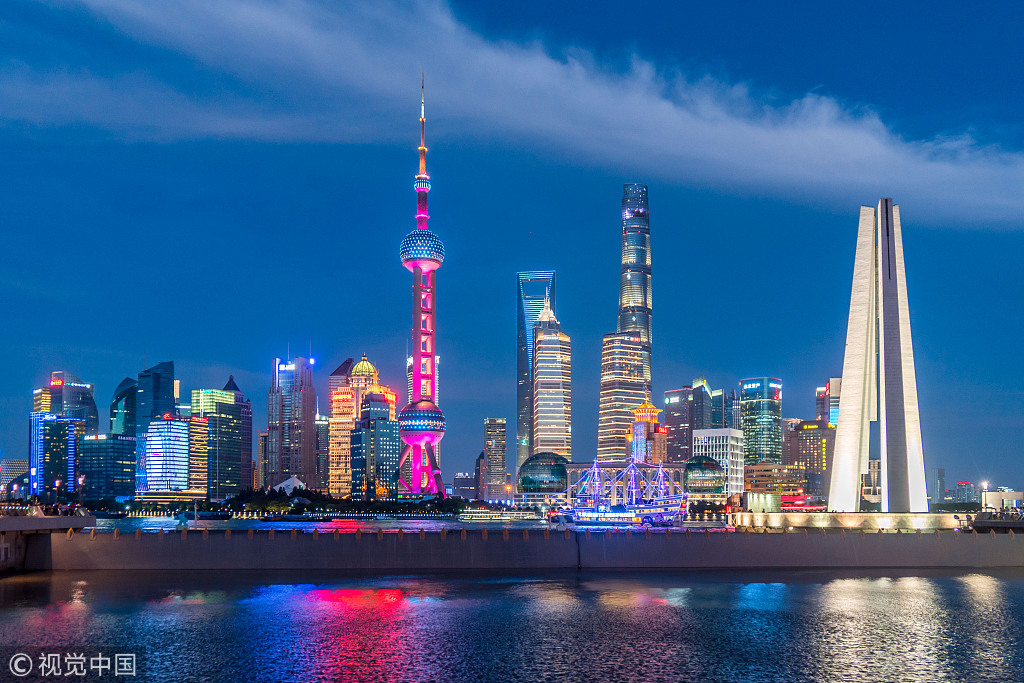41 cities in Yangtze River Delta to become single cluster


A total of 41 cities in the Yangtze River Delta region, which generates more than one-fifth of the country's GDP, announced ambitious goals on Tuesday to build the area into a world-class city cluster characterized by top-notch industrial combinations and an interconnected traffic network.
The city cluster would span Shanghai as well as Zhejiang, along with Jiangsu and Anhui provinces. They would feature economic vitality, capabilities in innovation, efficient space utilization, high-end talent pool, smooth resource flows, and a green environment, the goals announced in the Wuhu Declaration of City Cooperation in the Yangtze River Delta declared.
"We must make continuous breakthroughs in innovating systems and mechanisms of the integrated development of the region as some inter-city collaborations have gone further into district level based on differentiated advantages, such as scientific research, marine economy and public culture service," said Ruan Qing, the deputy director of the Shanghai Municipal Development and Reform Commission and deputy director of the Yangtze River Delta Regional Cooperation Office.
The construction of the megalopolis surrounding Shanghai and the metropolitan areas rolling out from Zhejiang's Hangzhou and Ningbo, Jiangsu's Nanjing, and Anhui's Hefei will all be fast-tracked, he said.
"The delta region with Shanghai as a core city should better serve the country's comprehensive development blueprint and represent the country in international competitions and collaborations by using of its advantage of an internationally compatible business environment and cities contributing respective resources to form unified competitiveness," Shanghai executive vice-mayor Chen Yin said.
The region will take steps to promote the deep integration in both the innovation and industrial chain within the region and jointly cultivate new technologies and business models to ultimately create industrial clusters in such fields as artificial intelligence and biomedicine.
This would be based on the existing G60 Science and Innovation Corridor, a high-tech manufacturing zone connecting Shanghai and eight other cities in the delta, according to the declaration.
"Since the official launch of the corridor last year, nine industrial cooperation demonstration parks have started construction and more than 80 major collaboration projects have been signed," Ruan said.
The joint effort to construct a world-class airport cluster and more high-speed rail routes and expressways was also highlighted in the declaration. The measures are aimed at forming a 90-minute commuting circle to Shanghai, the largest city in China whose GDP topped 3 trillion yuan ($424 billion) in 2017.
The infrastructure will see a 161-kilometer six-lane expressway linking Hangzhou, Shaoxing and Ningbo in Zhejiang which is scheduled to be completed ahead of the 2022 Asian Games which will be held in Hangzhou. This will better facilitate traffic in the rapidly-developing province which now features a vibrant private economy, internet and digital technology.
In the same session, it was announced that seven cities in Anhui have joined the inter-city conference on the delta region's economic coordination, signifying that the conference mechanism covers all the cities of prefecture-level and above in the region. The seven cities are Bengbu, Huangshan, Lu'an, Huaibei, Suzhou, Bozhou, and Fuyang.
MOST POPULAR
- 1 Record trade bodes well globally
- 2 China updates Catalogue of Encouraged Industries for Foreign Investment
- 3 China's commerce ministry to boost consumption, opening-up in 2026
- 4 China's auto production, sales rank first globally for 17th consecutive year
- 5 China remains world's largest online retail market for 13th straight year







